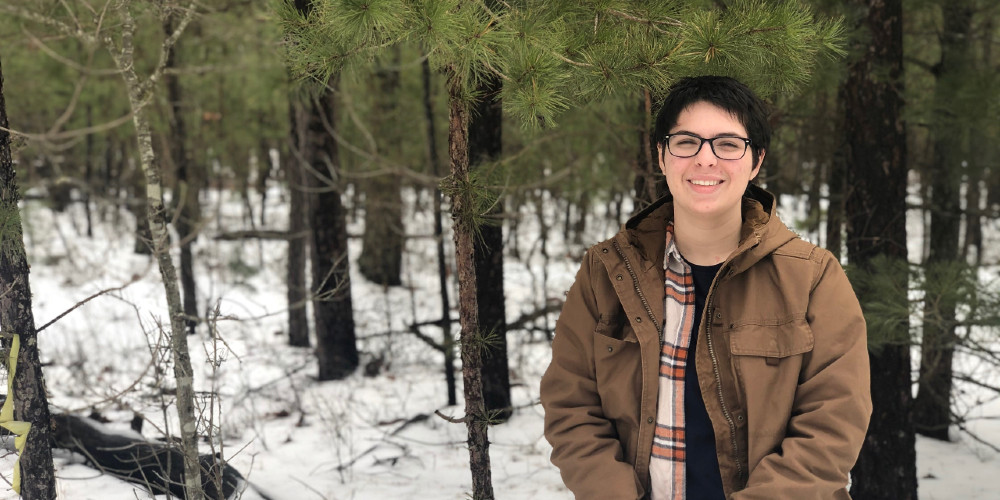Rutgers‒Camden Undergraduate’s Research on Prescribed Fires and Wildfires in The Pinelands Could Help Protect Forest Ecosystems

Julia DeFeo’s innovative Rutgers University‒Camden research on prescribed fires and wildfires in the New Jersey Pinelands offers a window into their impact on insects and the forest ecosystem.
Prescribed fire is a common land management tactic in forest ecosystems like those found in the Pine Barrens. Extensive research shows that changes in climate create warmer, drier conditions, and are causing frequent and more intense wildfires.
“Because changes to historic fire regime — frequency, intensity, duration – are becoming increasingly prevalent around the globe, understanding the way these events impact forest food webs will be important as we try to predict long-term shifts in ecosystem structure and function,” explains DeFeo, a senior biology major from Haddonfield.
Insects in the Pine Barrens, including beetles, crickets, and ants, play a key role in the forest because they can drive the cycling of nutrients through the soil.
By studying the insects’ diversity, size, and diet in forest plots that were exposed to a fire, DeFeo hopes to clarify the effects of increasing fire disturbance on soil animals and changes in the food web and in the composition of the insect community after a fire.
One of the factors DeFeo is considering is whether the animal is an herbivore, carnivore, omnivore, or decomposer.
“Decomposers are especially important, because they help recycle nutrients back into the soil ecosystem and make those nutrients accessible to other members of the community,” says DeFeo. Understanding the way the fires impact forest food webs will be important as researchers predict long-term shifts in ecosystem structure and function.
As a sophomore, DeFeo began conducting research at the Rutgers Pinelands Field Station, more than 30 miles east of Camden, with John Dighton, director of the field station and a professor with a joint appointment in the Rutgers–Camden biology department and at Rutgers–New Brunswick. Angélica González, a Rutgers–Camden assistant professor of biology, and Mike Gallagher, a research ecologist from the United States Forest Service, also oversee DeFeo’s research.
While classes turned to remote learning in March of 2020 due to the pandemic, DeFeo was able to continue conducting research at the Pinelands Field Station, and conduct studies in the lab by following safety and social distancing protocols.
DeFeo’s opportunities at Rutgers–Camden have trained her well for a future career in research. She is the recipient of the 2021 Trailblazing Undergraduate Research Award from the Ecological Society of America. “I have always been excited about the questions I am trying to answer in my research, so it is such an honor to have an organization like ESA choose to highlight my work,” DeFeo says. She will present her Pine Barrens research at the organization’s annual conference in August.
After she graduates in May, she will begin a master’s degree program at Virginia Tech, then pursue a Ph.D. to continue conducting research she began exploring at Rutgers‒Camden.


